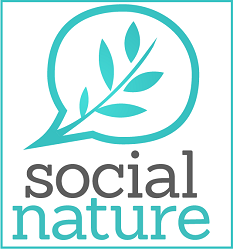Vancouver Heart-Mind Symposium
Heart-Mind well-being refers to the balance between educating the mind and educating the heart. We now know that for children to flourish socially and emotionally, we need to educate both the heart and the mind.
Research tells us that Heart-Mind well-being is critical to the life-long health and happiness of children and youth. They have a more positive attitude towards themselves, do better in school and they grow into adults who have the skills that today’s employers consider important for the workforce of the future.
Simply put, they are happier, and get along with others.
On January 10th, 2015, various groups from different neighbourhood houses, school board, and community centres all attended the Vancouver Heart-Mind Symposium held at Mount Pleasant Neighborhood House. I represented Frog Hollow Neighborhood House. We had two amazing and inspiring speakers at the symposium: Kim Schonert-Reichl and Maria LeRose.
During the conference, each group had a chance to do a craft project and to come up with a poster about our Compassion Project. We had feedback from the speakers/presenters and that really helped us with our ideas.
This is our poster:

Here are our two wonderful project leaders giving a short speech about our poster and our project.


Kim and Maria also discussed briefly about the 5 qualities that make up the Heart-Mind Index. It is developed by the Dalai Lama Center for Peace & Education, Heart-Mind Online is an interactive online learning resource for those searching for evidence-informed resources on bullying, anxiety, making friends, peaceful problem solving, sharing and many other core heart-mind competencies.

Research tells us that Heart-Mind well-being is critical to the life-long health and happiness of children and youth. They have a more positive attitude towards themselves, do better in school and they grow into adults who have the skills that today’s employers consider important for the workforce of the future.
Simply put, they are happier, and get along with others.
On January 10th, 2015, various groups from different neighbourhood houses, school board, and community centres all attended the Vancouver Heart-Mind Symposium held at Mount Pleasant Neighborhood House. I represented Frog Hollow Neighborhood House. We had two amazing and inspiring speakers at the symposium: Kim Schonert-Reichl and Maria LeRose.
During the conference, each group had a chance to do a craft project and to come up with a poster about our Compassion Project. We had feedback from the speakers/presenters and that really helped us with our ideas.
Here are our two wonderful project leaders giving a short speech about our poster and our project.
Kim and Maria also discussed briefly about the 5 qualities that make up the Heart-Mind Index. It is developed by the Dalai Lama Center for Peace & Education, Heart-Mind Online is an interactive online learning resource for those searching for evidence-informed resources on bullying, anxiety, making friends, peaceful problem solving, sharing and many other core heart-mind competencies.
- Gets Along with Others: Getting along with others is the ability to form positive and healthy relationships with peers and adults. Children with better abilities to regulate their emotions and behaviours have more friends and experience more positive playtime with their peers.
- Compassionate and Kind: Being compassionate and kind is closely related to empathy. While empathy refers more generally to the ability to take the perspective of and to feel the emotions of another person, compassion goes one step further. Compassion includes the desire to take actions that will alleviate another person’s distress.
- Solves Problems Peacefully: Managing conflict effectively is about creating an atmosphere where violence and aggression are not likely. To resolve conflict means using empathy, problem-solving skills, understanding other points of view and coming up with ways to make things right in a fair way. Peace is more than the absence of conflict and violence. It is recognizing and acting on the worth of self, others and our interconnectedness of humans.
- Secure and Calm: Secure and calm describes the ability to take part in daily activities and approach new situations without being overwhelmed with worries, sadness or anxiety. To be secure and calm also means being able to cope with stress and pressure, and to bounce back from difficulties. It is an inner capacity for well-being.
- Alert and Engaged: Being alert and engaged is the ability to manage and direct one’s own feelings, thoughts and emotions. In general, it is the ability to be ‘present’ and to exercise self-control.

















0 comments: